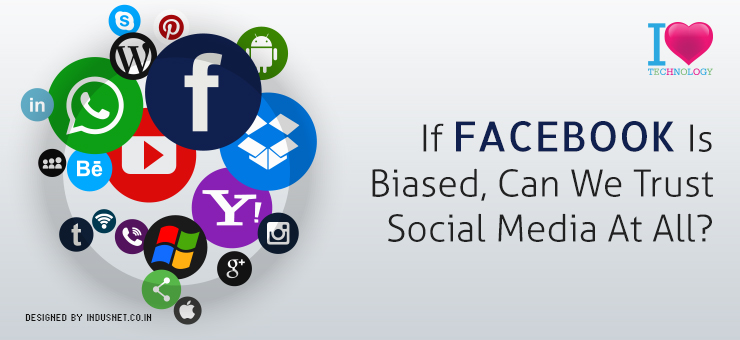
A few months ago, there was an uproar across the world when it was revealed that Facebook’s trending topics had a liberal slant. Former employees of Facebook admitted that sometimes they consciously suppressed conservative topics and ideas. This led to a backlash and an inquiry, for which Facebook responded by saying that most of the trends were neutral because they were chosen by an algorithm. That is quite true and we could possibly believe that.
Facebook’s ad business runs on algorithms and it does not stand to benefit anything from suppressing topics or ideas from various political entities. On the other hand, questions need to be raised about algorithms themselves, and their place in our society. Algorithms are increasingly influencing what we read, what music we listen to, and how we choose things that we want to buy. In fact, more than the companies, it is the algorithms that they develop, which have control over suppressing or releasing information or trends.
It is not possible to say whether they are developed to be biased or not. In fact, the chances are very high that an algorithm can have an in-built bias. On the other hand, algorithms are designed by programmers who do not understand the ramifications of what the algorithms will do. In other words, the real bias arises from the viewer or user, who sees what is displayed by the algorithm, and how he or she chooses to see it.
[php snippet=1]
What an algorithm does?
When you listen to Apple Music, you might have noticed how it fetches certain genres of music, based on what you listened. Similarly, Facebook ads are shown depending on what you might have liked or said on Facebook. Facebook Trends on the other hand, depend on your location, and also on the algorithm which might see what’s worthy of being shown.
It has been taught to deliver content that might be viral, argument-provoking, catchy and entertaining. This does not mean news and analysis that is not catchy or viral is not important. Here lies the problem with algorithms and all the artificial intelligence as we know them today. While inherently an algorithm is not biased, the way a programmer develops it may make it bring biased results. This is clearly the case with Facebook Trends.
Coders and algorithms aren’t the problem
Do we blame the developers of Facebook Trends then? Not at all. They only write codes. What we need to understand is, algorithms are not biased, and social media is not inherently flawed. What is flawed is the way we approach social media. Choosing other sources of information is also a good thing to do. If not that, one can always take the information we find on the internet with a pinch of salt.
At least, it is not clear that Facebook isn’t biased, and we do not have to start distrusting social media. We just need to understand that certain qualities of content will likely be picked up by algorithms. Our constant endeavor must be to search for these qualities and use them while publishing content.